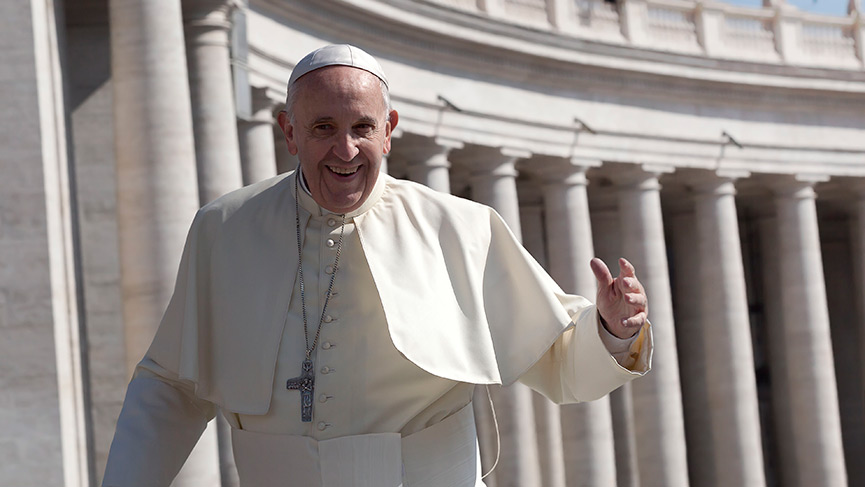Pope at Angelus: forgiveness and mercy helps avoid suffering, wars...

Pope Francis
At Sunday’s midday Angelus prayer, Pope Francis reflects on the day’s Gospel of the parable of the unmerciful servant saying if we do not strive to forgive and love, neither will we be forgiven and loved.
From Vatican News
Pope Francis is urging Christians to imitate God's merciful attitude, saying the world could be spared much suffering and many wounds and wars if forgiveness and mercy were "the style of our life."
Speaking to a crowd gathered in Rome St. Peter’s Square, the Pope reflected on the parable of the unmerciful servant in Matthew’s Gospel (18:21-35), the Gospel of the day. A master forgives a servant's enormous loan when he pleaded for time to repay it. But when that servant came across another fellow servant who owed him only a modest amount, he had his fellow servant thrown into prison. Coming to know about it, the master punishes the unmerciful servant.
“How much suffering, how many wounds, how many wars could be avoided if forgiveness and mercy were the style of our life!”
Justice pervaded by mercy
Reflecting on the parable, Pope Francis drew attention to God's attitude, represented by the king, and that of the human person, represented by the servant. “The divine attitude is justice pervaded with mercy," he said, "whereas the human attitude is limited to justice.” The Pope said Jesus urges us to open ourselves courageously to the power of forgiveness, because “not everything in life can be resolved by justice”.
The need for merciful love, the Pope explained, is also the answer Jesus gives to Peter, who asked Jesus how many times he should forgive someone who sins against him. "In the symbolic language of the Bible this means that we are called to forgive always," the Pope explained.
Mercy in human situations
The Holy Father reflected: “How much suffering, how many wounds, how many wars could be avoided if forgiveness and mercy were the style of our life!”
“It is necessary to apply merciful love to all human relationships: between spouses, between parents and children, within our communities and also in society and politics.”
In off the cuff remarks, Pope Francis shared how he was touched by a line from the First Reading from the Sunday's Liturgy from the Book of Sirach: "Remember your last days, set enmity aside". He said that resentment and hatred from past offenses can continue to bother us like a fly. "Forgiving is not something momentary, it is something that we continue doing against that resentment, that hatred that keeps coming back." But thinking about our last days helps us put an end to that endless cycle, he said..
Call to forgive in the “Our Father”
This parable, the Pope said helps us to grasp fully the meaning of the phrase in the “Our Father”: "Forgive us our trespasses as we forgive those who trespass against us" (see Mt 6:12). These words, Pope Francis said, contain a decisive truth:
"We cannot demand God’s forgiveness for ourselves if we in turn do not grant forgiveness to our neighbour. If we do not strive to forgive and to love, we will not be forgiven and loved either."
In conclusion, Pope Francis urged everyone to entrust themselves to the Mother of God so that they may realize how much they are in debt to God and open their hearts to mercy and goodness.

Comment
Comment
Add new comment